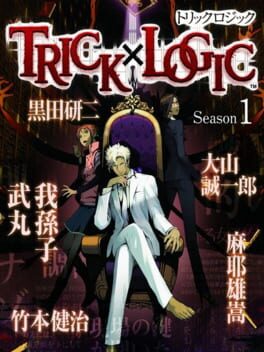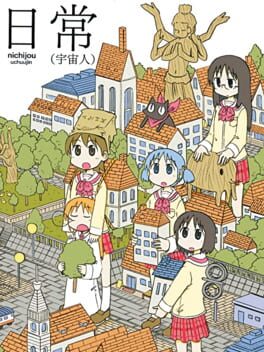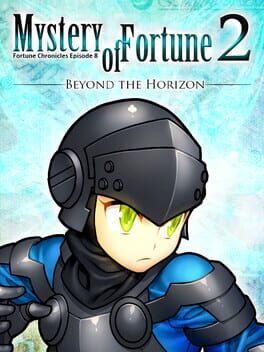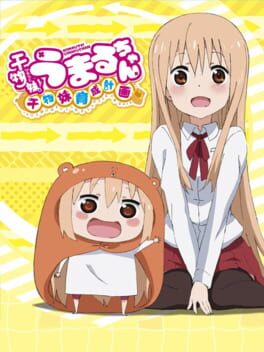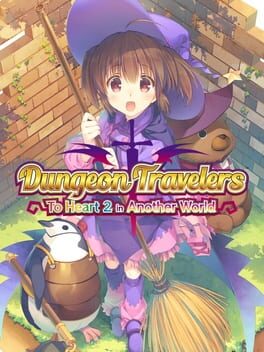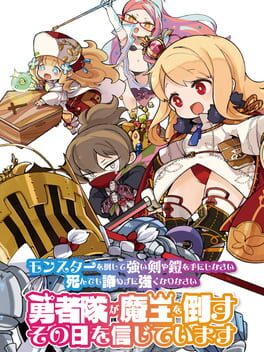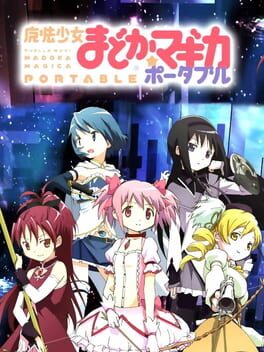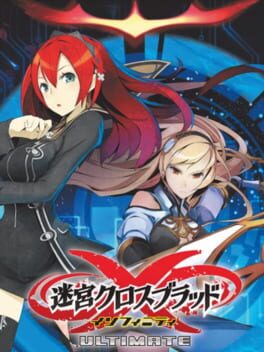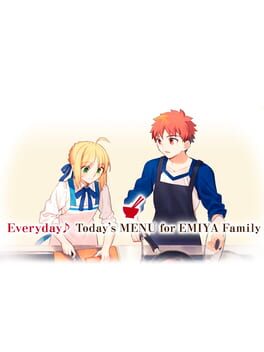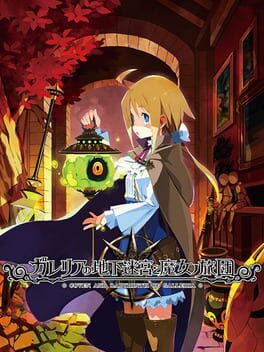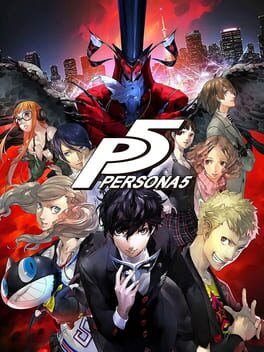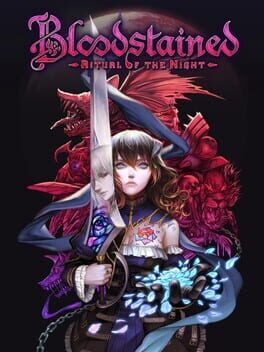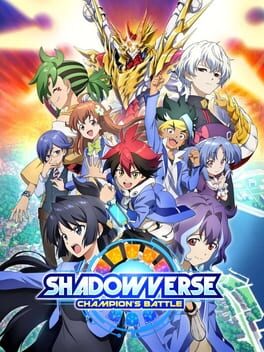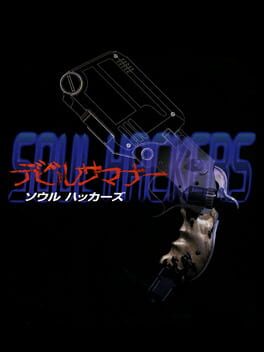After trailblazing by developing the first five Dragon Quests and trademarking both the "Mystery Dungeon" and "Sound Novel" genres, Chunsoft had managed to amass a great deal of talent both in-house and within the entertainment industry. Plastered on the front cover of TRICKxLOGIC Season 1 are the names of five such authors, with Koichiro Ito (Kamaitachi no Yoru 2/3, 428: Shibuya Scramble, The Centennial Case) at its helm. But even so, here is a game that never left Japan or the grips of the Playstation Portable.
Having been inspired by viewer-participation type detective television serials of its time, both seasons of the game feature five self-contained stories that involve a 'deduction' and 'solution' segment. Deduction involves reading the provided body of text and then attempting to combine highlighted phrases and keywords to form 'curiosities' that lead to 'inspirations' that are used as argumentative proofs during the solution segment. Not only are these satisfyingly clever mystery scenarios, but the systems for deduction are surprisingly exhaustive. During one session I ended up happily spending 6 hours forming arguments for suspects that turned out to be completely innocent.
Scenarios are bound to a frame-story involving a genius prosecutor Yoshikawa Itsuki whose soul has fallen into the underworld for unknown reasons and has been tasked by Yama, the judge of human souls, with unraveling the truth from accounts of the human world. During his ordeal Yama summons a few friendly faces to aid this prosecutor. These characters are entwined with each of the scenarios and serve to provide comic relief and even suggest theories of their own to help narrow down the options. As you continue to problem solve optional hints become available, and when you submit proofs you can see how your math is lining up and are given rough estimations of correctness.
It should be also noted that the game features fully-animated cut-scenes, some voice acting, and pretty unique character designs. Additionally, nouns are occasionally highlighted throughout the text which can be combined to solve tiny riddles to unlock chapters of a bonus scenario, comedic audio dramas, and production art. Another surprising feature is that each chapter of each scenario can be listened to in audiobook form, in case you needed to approach the text from another angle.
It's truly refreshing to play a game that encourages the process of reasoning and entertaining possibilities. In games like Phoenix Wright I often find this is thrown to the wayside in favor of wacky characterizations and melodrama. Those games often gate you out of all the intel, forcing you to prod every single dialogue option or string you along through discovery sections. In TRICKxLOGIC, the truth is always simply waiting for you notice.
P. S - When you go to submit the final solution in the final chapter, the game will prompt you to download the ending from the PSN. This can be bypassed by loading your Season 1 save file on Season 2, and completing it there.
Having been inspired by viewer-participation type detective television serials of its time, both seasons of the game feature five self-contained stories that involve a 'deduction' and 'solution' segment. Deduction involves reading the provided body of text and then attempting to combine highlighted phrases and keywords to form 'curiosities' that lead to 'inspirations' that are used as argumentative proofs during the solution segment. Not only are these satisfyingly clever mystery scenarios, but the systems for deduction are surprisingly exhaustive. During one session I ended up happily spending 6 hours forming arguments for suspects that turned out to be completely innocent.
Scenarios are bound to a frame-story involving a genius prosecutor Yoshikawa Itsuki whose soul has fallen into the underworld for unknown reasons and has been tasked by Yama, the judge of human souls, with unraveling the truth from accounts of the human world. During his ordeal Yama summons a few friendly faces to aid this prosecutor. These characters are entwined with each of the scenarios and serve to provide comic relief and even suggest theories of their own to help narrow down the options. As you continue to problem solve optional hints become available, and when you submit proofs you can see how your math is lining up and are given rough estimations of correctness.
It should be also noted that the game features fully-animated cut-scenes, some voice acting, and pretty unique character designs. Additionally, nouns are occasionally highlighted throughout the text which can be combined to solve tiny riddles to unlock chapters of a bonus scenario, comedic audio dramas, and production art. Another surprising feature is that each chapter of each scenario can be listened to in audiobook form, in case you needed to approach the text from another angle.
It's truly refreshing to play a game that encourages the process of reasoning and entertaining possibilities. In games like Phoenix Wright I often find this is thrown to the wayside in favor of wacky characterizations and melodrama. Those games often gate you out of all the intel, forcing you to prod every single dialogue option or string you along through discovery sections. In TRICKxLOGIC, the truth is always simply waiting for you notice.
P. S - When you go to submit the final solution in the final chapter, the game will prompt you to download the ending from the PSN. This can be bypassed by loading your Season 1 save file on Season 2, and completing it there.
2011
it's like trying to read a 4-koma on an iOS app while being bombarded with adverts every 3 minutes.
to see a single ending it will take around 3 hours and require you to do roulette sequences, mashing minigames, and sit through several animations... 24 times, each loop.
after a little over 13 hours i had obtained 4/33 endings and sore digits for my troubles.
i like nichijou because of its animation and comedic delivery. there is nothing of the former and the latter is often undercut by the excessive bloat of mini-games and idle moments. only half of the game is voice acted, and for a game with so much CG you'd expect a more kinetic experience. often times you are just simply left filling in the gaps while staring at static character portraits. for example when Misato fires her weapons the screen simply flashes white, or when Daiku starts practicing go-soccer you just have to infer something amusing is happening from prior knowledge of the show.
a bummer, because i think the concept and the way the game is designed -could- actually make for a successful 'everyday' game that you play in small bursts. the game takes place over 8 hours in a single day with skits occurring every 20 minutes on the map. within each skit there is a set-up and an outcome that can vary depending on 3 moods - moods that can also affect which additional characters show up for the event. this in itself creates for a pretty massive amount of variance where you could actually see yourself becoming immersed in the daily lives of these characters.
but yeah, those damn minigames...
maybe if they had let you schedule an 'hour' at a time (instead of the 20 minutes) then skits would play uninterrupted and games would be reduced to 8 times per loop, but even then i'd probably tire of it.
to see a single ending it will take around 3 hours and require you to do roulette sequences, mashing minigames, and sit through several animations... 24 times, each loop.
after a little over 13 hours i had obtained 4/33 endings and sore digits for my troubles.
i like nichijou because of its animation and comedic delivery. there is nothing of the former and the latter is often undercut by the excessive bloat of mini-games and idle moments. only half of the game is voice acted, and for a game with so much CG you'd expect a more kinetic experience. often times you are just simply left filling in the gaps while staring at static character portraits. for example when Misato fires her weapons the screen simply flashes white, or when Daiku starts practicing go-soccer you just have to infer something amusing is happening from prior knowledge of the show.
a bummer, because i think the concept and the way the game is designed -could- actually make for a successful 'everyday' game that you play in small bursts. the game takes place over 8 hours in a single day with skits occurring every 20 minutes on the map. within each skit there is a set-up and an outcome that can vary depending on 3 moods - moods that can also affect which additional characters show up for the event. this in itself creates for a pretty massive amount of variance where you could actually see yourself becoming immersed in the daily lives of these characters.
but yeah, those damn minigames...
maybe if they had let you schedule an 'hour' at a time (instead of the 20 minutes) then skits would play uninterrupted and games would be reduced to 8 times per loop, but even then i'd probably tire of it.
there's a FFT-style class change system but they all ultimately funnel into two super classes, so why the run-around?
it's initially satisfying climbing through the first several regions on linear scaling but then it shifts into a more turbulent mana-based meta. as a result, your tasked with skewing your team towards mana generation and sinking all of your money into consumables to make progression.
i think, if i had some better metrics to evaluate my team along the way (dps/healing charts, something) i would have maybe been made aware of this sooner and course corrected.
in the process of shifting towards this stronger team composition i can no longer farm prior dungeons as easily or as cheaply as before, meaning i would need to create a new legion of units just for farming.
it is at this point that i have lost interest. had i have accidentally stumbled upon the 'correct build' i may not have reached this empass of potential tens of hours of grinding to compensate, but there's nothing to look forward to anyway since having had a taste of the super classes.
that and the game is rather demanding on systems resources, whether that be due to poor pc optimization or it potentially being a bitcoin farmer or whatever.
it's initially satisfying climbing through the first several regions on linear scaling but then it shifts into a more turbulent mana-based meta. as a result, your tasked with skewing your team towards mana generation and sinking all of your money into consumables to make progression.
i think, if i had some better metrics to evaluate my team along the way (dps/healing charts, something) i would have maybe been made aware of this sooner and course corrected.
in the process of shifting towards this stronger team composition i can no longer farm prior dungeons as easily or as cheaply as before, meaning i would need to create a new legion of units just for farming.
it is at this point that i have lost interest. had i have accidentally stumbled upon the 'correct build' i may not have reached this empass of potential tens of hours of grinding to compensate, but there's nothing to look forward to anyway since having had a taste of the super classes.
that and the game is rather demanding on systems resources, whether that be due to poor pc optimization or it potentially being a bitcoin farmer or whatever.
5/6 good ends, a little over 40 hours
kanau route when
character routes strongly hinge on flag(s?). had several runs 'fail' or default to a 0 favorability character despite maxing out the target characters relationship levels/skits.
i'm surely overlooking something but it's just not worth the effort to go through the slog of the raising mini-game for 30 days to be proven wrong again.
kanau route when
character routes strongly hinge on flag(s?). had several runs 'fail' or default to a 0 favorability character despite maxing out the target characters relationship levels/skits.
i'm surely overlooking something but it's just not worth the effort to go through the slog of the raising mini-game for 30 days to be proven wrong again.
2021
easily the most difficult and grindiest modern crawler i've ever played. i lost track of the number of times i wanted to drop this game and never look back. and yet, i kept getting pulled back in by the call of the superbosses, the feel of the combat, and the need for closure.
and when i finally beat the last boss after the tens of hours of attempts while barely making a dent, it almost felt like a fluke - but i will gladly accept the victory.
and when i finally beat the last boss after the tens of hours of attempts while barely making a dent, it almost felt like a fluke - but i will gladly accept the victory.
TL;DR:
a solid foundation that could have been fleshed out just a little more.
the lack of story, world building, and a deeper pool of visually distinct assets prevents me from feeling too strongly about this game. at the same time, it is innovative and meaty with satisfyingly designed dungeon layouts and monster interaction.
good 1 - an emphasis on boss fights and strategy for them. invulnerability phases, rage phases, add phases, narrow attack windows, damage type skews, really quite a large array of focus and none of it coming off gimmicky. more, they fully broadcast to you ahead of time what the party level average / boss kill turn number will net you a S rank. i think this is really refreshing. it presents a gentle alternative to the super bosses that you would find in a Dungeon Travelers game, which tend to be strongly bottle-necked by grind and gear. that said, i didn't have that hard of a time getting S rank on every boss.
good 2 - there are level caps and you determine when to level and de-level a character. leveling a character does not take long, and i rarely went over 1.5 hrs of dedicated grinding in a single dungeon. levels determine general stats as well as what skills you have access to. early on this limitations will cause you to potentially skew your levels towards one character just to access their skills for a boss fight.
independent to character levels are skill point accumulation and gear upgrades. every piece of a gear has an EXP bar and will automatically upgrade itself until it reaches that levels max rank. skill points are not capped in any form and will be slowly accrued over the course of the game. all this means that even if you are fiddling with the limitations in pursuit of the S rank evaluation, you can still be progressing in other ways.
good 3 - classes feel more individualized and interesting than they did in Undernauts. instead of subclasses you have alt classes that you can freely swap between. 'order' is focused strongly on the class (black mage for example) whereas the 'chaos' variant can pull from a variety of class skills (support mage w/hunter skills etc). inside of a dungeon you can freely respec your characters skill points and swap between these alt classes. however, you can only change profession back at base.
as much as i like the former freedom, i think you might as well go all the way and let us become FF14. allow me to have every hero be able to freely swap between every class, with gear load-outs saved and loaded in. if this were the case, they could focus even harder on the strategy side of things when it comes to boss fights.
good 4 - an interesting hedge on 'blind' dungeoning. every dungeon you start out in you don't have a map to. the map can be found eventually, or you can wuss out and permanently change to a mode where the map is always accessible. i personally used a third party program to map things out but at the end of the day i don't think it was necessary and probably would have been more fun without (i was expecting Dungeon Travelers-tier depravity).
good 5 - all the amenities of modern crawler: fast menuing, cursor memory, repeat inputs, auto-map movement that lets you quicksnap to exits and move across multiple floors and even through teleporters.
good 6 - delightful art style and animations. it's always pleasant to look at (even if i would have liked more monster variety)
medium 1 - as the game gets later the pool of available items expands making it more difficult to find relevant gear for your characters. i think this is where they could have benefited from the gem system that Demon Gaze uses, allowing you to specify what item bases will drop on the encounter to narrow your selections. but, at the same time you can stick with a lower tier piece of gear long enough it will have upgraded to the point that it is basically on par with stuff you are finding anyway.
medium 2 - dungeon hazards are underplayed to accommodate this emphasis on FOE movement and blindness. traditionally there are warping puzzles, one way doors, conveyor movement, spell restricted zones switch puzzles etc. by the end of the game i think i miss these qualities but at the same time the blind dungeon exploration was wholly unique that it almost balances out.
medium 3 - some text input puzzles, but they are very simple and just involve referencing documents you pick up.
flaw 1 - the dungeon biomes are not visually distinct enough. walls and tiles are essentially repainted or given a very slight flourish, and instead they opt for things like global tint or adding haze or lowering field of vision to change the mood, but Undernauts was much better in this regard.
flaw 2 - story and world-building is significantly weaker compared to Undernauts. there's a mimic you can talk to in every dungeon and a couple people in town you can chat up but there isn't much in the way of story here.
this could be a medium though since i think this appeals to the EO crowd who prefers games light on story but strong in every other area.
flaw 3 - a title this long with this kind of aesthetic evokes a plethora of off-the-wall comedy or rom/com animes that this game is very much not. and while the title an serve as a friendly reminder of how to approach playing the game, it is not emphasized of made meaningful by means of the game itself.
you boot up the game, and a mature female voice very patiently says the entire thing. it is not hammed up or made absurd. it is simply a few lines of dialogue that are said to you at one point early on.
ultimately, i'm not sure what their goal was with this title other than generating media buzz and i think this will only serve to cheapen its value over time.
a solid foundation that could have been fleshed out just a little more.
the lack of story, world building, and a deeper pool of visually distinct assets prevents me from feeling too strongly about this game. at the same time, it is innovative and meaty with satisfyingly designed dungeon layouts and monster interaction.
good 1 - an emphasis on boss fights and strategy for them. invulnerability phases, rage phases, add phases, narrow attack windows, damage type skews, really quite a large array of focus and none of it coming off gimmicky. more, they fully broadcast to you ahead of time what the party level average / boss kill turn number will net you a S rank. i think this is really refreshing. it presents a gentle alternative to the super bosses that you would find in a Dungeon Travelers game, which tend to be strongly bottle-necked by grind and gear. that said, i didn't have that hard of a time getting S rank on every boss.
good 2 - there are level caps and you determine when to level and de-level a character. leveling a character does not take long, and i rarely went over 1.5 hrs of dedicated grinding in a single dungeon. levels determine general stats as well as what skills you have access to. early on this limitations will cause you to potentially skew your levels towards one character just to access their skills for a boss fight.
independent to character levels are skill point accumulation and gear upgrades. every piece of a gear has an EXP bar and will automatically upgrade itself until it reaches that levels max rank. skill points are not capped in any form and will be slowly accrued over the course of the game. all this means that even if you are fiddling with the limitations in pursuit of the S rank evaluation, you can still be progressing in other ways.
good 3 - classes feel more individualized and interesting than they did in Undernauts. instead of subclasses you have alt classes that you can freely swap between. 'order' is focused strongly on the class (black mage for example) whereas the 'chaos' variant can pull from a variety of class skills (support mage w/hunter skills etc). inside of a dungeon you can freely respec your characters skill points and swap between these alt classes. however, you can only change profession back at base.
as much as i like the former freedom, i think you might as well go all the way and let us become FF14. allow me to have every hero be able to freely swap between every class, with gear load-outs saved and loaded in. if this were the case, they could focus even harder on the strategy side of things when it comes to boss fights.
good 4 - an interesting hedge on 'blind' dungeoning. every dungeon you start out in you don't have a map to. the map can be found eventually, or you can wuss out and permanently change to a mode where the map is always accessible. i personally used a third party program to map things out but at the end of the day i don't think it was necessary and probably would have been more fun without (i was expecting Dungeon Travelers-tier depravity).
good 5 - all the amenities of modern crawler: fast menuing, cursor memory, repeat inputs, auto-map movement that lets you quicksnap to exits and move across multiple floors and even through teleporters.
good 6 - delightful art style and animations. it's always pleasant to look at (even if i would have liked more monster variety)
medium 1 - as the game gets later the pool of available items expands making it more difficult to find relevant gear for your characters. i think this is where they could have benefited from the gem system that Demon Gaze uses, allowing you to specify what item bases will drop on the encounter to narrow your selections. but, at the same time you can stick with a lower tier piece of gear long enough it will have upgraded to the point that it is basically on par with stuff you are finding anyway.
medium 2 - dungeon hazards are underplayed to accommodate this emphasis on FOE movement and blindness. traditionally there are warping puzzles, one way doors, conveyor movement, spell restricted zones switch puzzles etc. by the end of the game i think i miss these qualities but at the same time the blind dungeon exploration was wholly unique that it almost balances out.
medium 3 - some text input puzzles, but they are very simple and just involve referencing documents you pick up.
flaw 1 - the dungeon biomes are not visually distinct enough. walls and tiles are essentially repainted or given a very slight flourish, and instead they opt for things like global tint or adding haze or lowering field of vision to change the mood, but Undernauts was much better in this regard.
flaw 2 - story and world-building is significantly weaker compared to Undernauts. there's a mimic you can talk to in every dungeon and a couple people in town you can chat up but there isn't much in the way of story here.
this could be a medium though since i think this appeals to the EO crowd who prefers games light on story but strong in every other area.
flaw 3 - a title this long with this kind of aesthetic evokes a plethora of off-the-wall comedy or rom/com animes that this game is very much not. and while the title an serve as a friendly reminder of how to approach playing the game, it is not emphasized of made meaningful by means of the game itself.
you boot up the game, and a mature female voice very patiently says the entire thing. it is not hammed up or made absurd. it is simply a few lines of dialogue that are said to you at one point early on.
ultimately, i'm not sure what their goal was with this title other than generating media buzz and i think this will only serve to cheapen its value over time.
it just makes me sad that the madoka dungeon crawler is such a terribly designed pile. the universe of that show is so ripe for psychological surrealism fuckery, and honestly some of the monsters and biomes in this game are pretty great but christ is it unfun to play. it's like one of the only dungeon crawlers i had to drop out of frustration.
the game itself is episodic, with 6 routes that you unlock as you go. within each route is essentially a mini VN where you can choose to visit different locations on the maps with the characters 4 times a day. usually the routes take the span of an entire month, which makes for a ton of VN-like interchange. the choices you make talking to the girls (as kyubey) will effect their karmic and emotional values which will affect the dungeon crawling portions of the route as well as potential endings.
at the end of the route you will always go to the same place, warupurugi's night, and try to fight the ultimate witch. whether you win or lose there, you can then carry over any of the accumulated spell books and emotional energy (scales damage, but makes you more prone to turning into a witch) into future runs or another route.
but herein lies the problem, the game is fucking hard. that, and you're going to need to be running these routes many many times if you want to get enough spellbooks and energy to scale your party members to actually slay warupurugi night. but not even that, if you don't grind enough you might just get filtered in the second or third route even.
it just simply isn't worth the grind, as much as i impressed with the amount of voice work story-building put into this game. i really should have just played this game on emulator so i could un-throttle my way through all the animations and text spamming because it just wasn't fast enough.
the game itself is episodic, with 6 routes that you unlock as you go. within each route is essentially a mini VN where you can choose to visit different locations on the maps with the characters 4 times a day. usually the routes take the span of an entire month, which makes for a ton of VN-like interchange. the choices you make talking to the girls (as kyubey) will effect their karmic and emotional values which will affect the dungeon crawling portions of the route as well as potential endings.
at the end of the route you will always go to the same place, warupurugi's night, and try to fight the ultimate witch. whether you win or lose there, you can then carry over any of the accumulated spell books and emotional energy (scales damage, but makes you more prone to turning into a witch) into future runs or another route.
but herein lies the problem, the game is fucking hard. that, and you're going to need to be running these routes many many times if you want to get enough spellbooks and energy to scale your party members to actually slay warupurugi night. but not even that, if you don't grind enough you might just get filtered in the second or third route even.
it just simply isn't worth the grind, as much as i impressed with the amount of voice work story-building put into this game. i really should have just played this game on emulator so i could un-throttle my way through all the animations and text spamming because it just wasn't fast enough.
100%'d story mode
it feels like there's only a third of a 5,280円 game here.
there are only 8 minigames, which might have been forgivable if you didn't make the same 15 dishes for each of the 3 girls. this problem carries over into the story as well since the the repetition of dishes and events that inspire them (usually holidays) end up making the scenarios far too similar. the vast majority of story is just Shiro talking to someone across a table. more, there are only the four characters and no one else, despite frequently mentioning others. take all this, add in a handful of crashes and strangely unstable frame-rate when docked (only), and you're left feeling a little empty inside.
it feels like there's only a third of a 5,280円 game here.
there are only 8 minigames, which might have been forgivable if you didn't make the same 15 dishes for each of the 3 girls. this problem carries over into the story as well since the the repetition of dishes and events that inspire them (usually holidays) end up making the scenarios far too similar. the vast majority of story is just Shiro talking to someone across a table. more, there are only the four characters and no one else, despite frequently mentioning others. take all this, add in a handful of crashes and strangely unstable frame-rate when docked (only), and you're left feeling a little empty inside.
i like the narrative.
if LoR was a character study bonsai, LoG is the garden of versailles. it is meticulously crafted, with every spiral and hedge in the path -eventually- made lucid.
and at first blush, this craftsmanship carries into the dungeons which feature new biomes, movement technology, and innumerable improvements over LoR's core systems.
but tread deeper and the quality will start to deteriorate, the patterns will start to repeat, and finally - you will be asked to endure one of the most unforgivable post-"games" in recent history.
a journey not to be taken lightly.
if LoR was a character study bonsai, LoG is the garden of versailles. it is meticulously crafted, with every spiral and hedge in the path -eventually- made lucid.
and at first blush, this craftsmanship carries into the dungeons which feature new biomes, movement technology, and innumerable improvements over LoR's core systems.
but tread deeper and the quality will start to deteriorate, the patterns will start to repeat, and finally - you will be asked to endure one of the most unforgivable post-"games" in recent history.
a journey not to be taken lightly.
2016
first 10 hours were a blast and then turned into a slog. characters and story did nothing for me, felt soulless and milktoast. later frustrations from 'difficulty' ramp with hero powers and grind. eventually settled into bishop deck which wins the game?? idk no desire to do postgame stuff- grind 100 decklists etc. nah.
